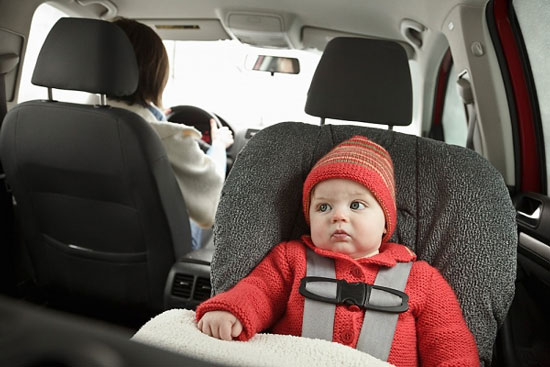Detecting toxic substances in car seats for children
More than half of the child seats on cars sold in the US market contain toxic chemicals.
This is the shocking conclusion of a scientific research program by the US Ecology Center - a nonprofit organization based in Michigan - on August 2.
After conducting the quality inspection of 150 seats for children cars, the center discovered that up to 60% of seats contain hazardous chemicals for human health such as bromine and chlorine - ingredients in plastic Polyvinyl chloride plasticizer (PVC) .

The US Environmental Protection Agency classified PVC into the product category
Can cause cancer.
Lab tests in the lab also show that, in high temperature conditions, the chemicals will produce a large amount of dioxin - one of the toxic chemicals that may in the long run affect brain development, causing cancer, weakening the immune system and reproductive organs.
Experts say that heat and ultraviolet (UV) in cars are the causes of accelerating the production of these toxins.
Meanwhile, children are the most vulnerable objects, because their bodies are still not fully developed and often have to sit for many hours in the car seats.
Since 1997, the US Ecological Center has conducted more than 20,000 toxic substances experiments on 7,000 consumer products in the United States.
All tests were conducted using X-ray radiography (X-ray) - a machine that quickly detects the formation of toxic substances in less than 60 seconds.
- Detecting a number of toxic metals has a high rate in autistic children
- Tiny gas sensors are effective in detecting toxic substances
- Chinese toys contain toxic substances that feminine boys
- Long-term harm when children sit a lot on a stroller
- Many children are sucking the poison into their mouths
- Pollution causes 9 million deaths each year
- Detecting milk containing detergents in India
- Aircraft seats are 'elastic' according to the passenger body
- Top 10 most dangerous substances on the planet
- Cadmium is dangerous for children like mercury
- Detecting carcinogens in new car interior
- Patents for children in the early 20th century
 Green tea cleans teeth better than mouthwash?
Green tea cleans teeth better than mouthwash? Death kiss: This is why you should not let anyone kiss your baby's lips
Death kiss: This is why you should not let anyone kiss your baby's lips What is salmonellosis?
What is salmonellosis? Caution should be exercised when using aloe vera through eating and drinking
Caution should be exercised when using aloe vera through eating and drinking